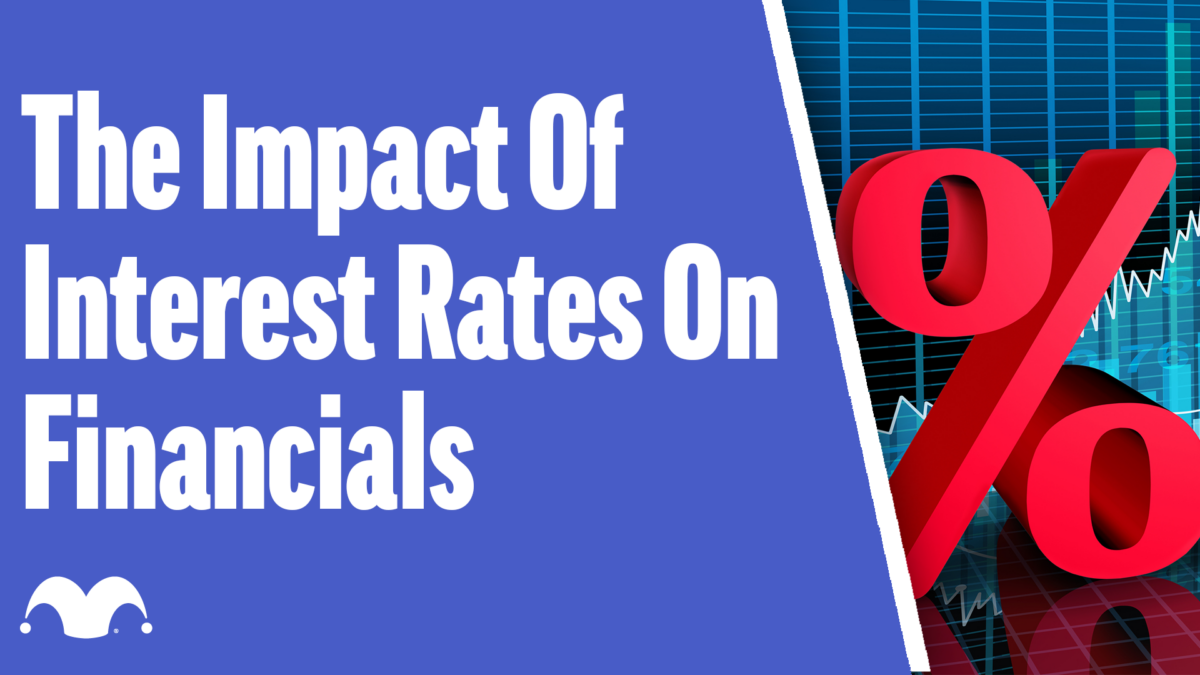Motley Fool Canada analysts Nate Parmelee, Nick Sciple, Jim Gillies and Buck Hartzell break down how investors should consider financial stocks in the face of rising interest rates in Canada.
If you’re ready to invest better, Motley Fool Stock Advisor Canada can help. You don’t need a broker or a degree in Finance to grow your wealth. You just need a few minutes a month, and some great stock recommendations – and that’s what we’re here for. Try Stock Advisor Canada risk-free today.
Transcript
Nate Parmelee: I don’t want to go too far into academia and how people do valuations and how much interest rates increasing, how much of that matters, the change in interest rates. But if you just follow what’s taught in the textbook and adjust your discount rate based on what’s happening with interest rates, you will do exactly what the market is doing right now. You will get overly excited when interest rates are low and you will get super pessimistic as they go up. If you balance it out and just pick a middle-of-the-road interest rate and not buy as heavily when things get too expensive to that rate and buy more when they’re cheap relative to that rate, I think you’ll find yourself happier in the long run with your returns, and also just calmer throughout the whole process because you’ll be going back and forth, fearful that things are expensive or that you’re missing out, et cetera.
Nick Sciple: Nate, this is probably a good time to jump in. You’d mentioned wanted to talk some about financials. That’s one of the sectors of the market that is probably most directly affected by rates. These are folks transacting in money, and you know the cost of money is interest rates. When you look at the financial sector, what are you seeing today? How is that being impacted by rates?
Nate Parmelee: It’s not pretty. [LAUGHTER] Pretty much, everybody is seeing their margins squeezed because they’re having to pay more for deposits and more for capital, and they’re having a tougher time lending right now. Mostly because they’re worried that folks are going to be able to pay them back because they’re seeing an increase in non-performing loans as they go out. They’re getting tighter with lending, but not so restrictive as we’ve seen, say in the past during the financial crisis or even during the last.com bubble 20-some-odd years ago. It’s not quite to that point but it’s progressing in that direction still. Non-performing loans are continuing to increase. We see bank earnings estimates coming down pretty much across the board. If you follow the newspapers, you’ll see an analyst coming out every day or two saying they’re lowering their estimates for the big six banks. We’ve seen Chesswood, which is a small-cap commercial lender, does their own lending. They were pretty early to actually start reserving for more non performing loans last year, they’ve now gone ahead and said, and now we’re going to cut our dividend by 80% and preserve capital. I think more than anything just to take the risk off the table that they have to raise equity. It also allows them though, if things start to turn to be more aggressive because they will have more capital on hand coming in each month start going out as dividends, and they can be more aggressive lending as things start to change. It’s a tough picture out there. We also saw all the payment processors, especially the new wave of folks being Nuvei and Agen and PayPal basically all get slaughtered with their last earnings. I think PayPal probably came out of it the least damage. They actually had pretty good earnings and still went down by 10% with their results. Everybody’s getting hit pretty hard across the board in the financial sector right now.
Buck Hartzell: I think that presents opportunities. I think that presents opportunities for people that have discriminating kind of look at things in a longer term review, but because as you mentioned, Nate, like those are companies that are growing. I think they estimate the value of those businesses are growing. They’re relevant companies, and they’re going to be bigger, 45 and 10 years from now. The only question is how much bigger. We’d like the payments business. I think I do. I know you do as well, it’s a good business and there is change going on in the payments business. Then the question is, you had times where we had 0% interest rates around the world. I don’t think any of us was using a discount rate of 3% on those future earnings or whatever, we were all normalizing.
Jim Gillies: I never dropped below 10 personally.
Buck Hartzell: We didn’t play that game, but yet the valuations went way up because other people did, and then they came down. My premise is that you overshoot in both directions. Howard Marks has said this, it’s the pendulum idea, the farther it swings up on the overvaluation. It may come down to where it should be and it’ll run way past it again. That’s what we see in some of those growth businesses. There are high growers, and the rise in interest rates has certainly impacted evaluations. Over the long term though, I think for most of us, we kind of had a steadier review of things anyhow. But it goes by that price that it should have been at, and that presents opportunities.









